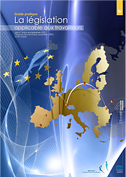You are an employer based in another European Union member State, Iceland, Liechtenstein, Norway*, or Switzerland**, sending an employee with member State citizenship who ordinarily performs their job in the State where you are based to France.
Under European regulations, mobile workers within the European Union must only belong to a single social security system, generally that of the State where they perform their job.
If your employee qualifies for posted-worker status, they are required to remain a member of their home State's social security system.
If your employee does not qualify for posted-worker status, it may be possible to reach a special agreement. In either case, social security contributions and charges will continue to be payable in the State where you are based, which exempts you from also paying them in France.
However, if your employee does not qualify for posted-worker status and no special agreement is granted, they will need to join the French social security system for all risks.
 Video : What is posting?
Video : What is posting? A guide to posting
A guide to postingPosting means that an employer based in a member State in which they ordinarily conduct business temporarily sends an employee to work in another member State. During that period, your employee will continue to come under the social security legislation of their usual State of employment (home State).
For your employee to remain a member of their usual social protection scheme, you and they will need to continue to have an ongoing direct (or employer-employee) relationship.
Postings can last for a period of no more than 24 months. French law grants automatic posted-worker status if the employer and the employee meet the following requirements:
Before your employee goes to France, you are required to take the following steps (art. 15 of (EC) regulation No. 987/2009):
Any special agreements come under article 16 of (EC) regulation No. 883/2004.
The member States' competent authorities, or their designated institutions, can mutually agree to an exception to the provisions of articles 11 through 15 of (EC) regulation 883/2004. Any exception must be reached for the purpose of furthering the interests of certain employees or categories of employees. The possibility for special agreements is not designed for postings in particular but covers all exceptions to the various social security membership rules. Article 16 allows for the posting length cutoffs under article 12, paragraph 1, of the regulation to be extended for certain categories of workers.
Special agreements pursuant to article 16 are used for the following purposes:
You will need to submit a request for application of article 16 of (EC) Regulation No. 883/04 to the competent institution for the State where you are based. That institution is competent to process, authorize, and send the application for continued membership in the worker's current social security system to the competent French institution, Urssaf (Service mobilité internationale). Urssaf will then notify the institution from which it received the application of its opinion.
If the two authorities or institutions (Urssaf and that of the State where you are based) agree, an A1 certificate of applicable legislation will be issued for the authorized period of time. As an employer, you will also need to notify the competent institution for the State where you are based of any changes to your employee's status (interruption, return, etc.).
The maximum length of exemption from Social Security membership in the State where work is carried out is determined by each member State.
If the application is rejected, your employee will have compulsory membership in the French social security system, with social security contributions and charges payable in France.
If your company has a place of business in France and you are sending an employee there, they will be required to join the French social security system. All contributions and charges will be paid by your French place of business under the same rules as for the other employees working there.
Workers doing their job in France on behalf of a foreign employer are required to join the French social security system.
You are required to register and pay all compulsory contributions and charges in France.
The National Center for non-French Companies (Urssaf Service Firmes étrangères/ SFE) is France's single contact for employers with no place of business in France. This is where they declare their company and their employees who are required to join the French scheme. SFE is tasked with notifying the designated social security institutions with which the company is required to register (unemployment insurance, supplementary retirement pension fund, etc.).
Social security contributions and charges are payable to SFE, which also collects unemployment insurance contributions and charges.
For more information: Entreprise étrangère sans établissement en France (Foreign employers with no place of business in France) and The Foreign Firms' Slip (“Titre Firmes Etrangères”/ TFE)
The Malakoff Humanis group is the competent organization to collect supplementary pension contributions:
If your company's business activities come under France's agricultural scheme, the National Foreign Firms Center (“Centre National des Firmes Etrangères”/ CNFE) is MSA d'Alsace:
The MSA fund also administers any contractual contributions.
On the official social declaration website net-entreprises (or msa.fr if your company's business activities come under France's agricultural scheme), you can complete several formalities related to the registration of your company, or to a change in your company's activities, at the same time.
Your employee will need a French social security number. This is assigned at birth for those born in France. For individuals born in another country, it is assigned once a pre-hiring declaration (“déclaration préalable à l'embauche”/ DPAE) has been submitted for them via net-entreprises.fr (or via msa.fr if the company's business activities come under France's agricultural scheme).